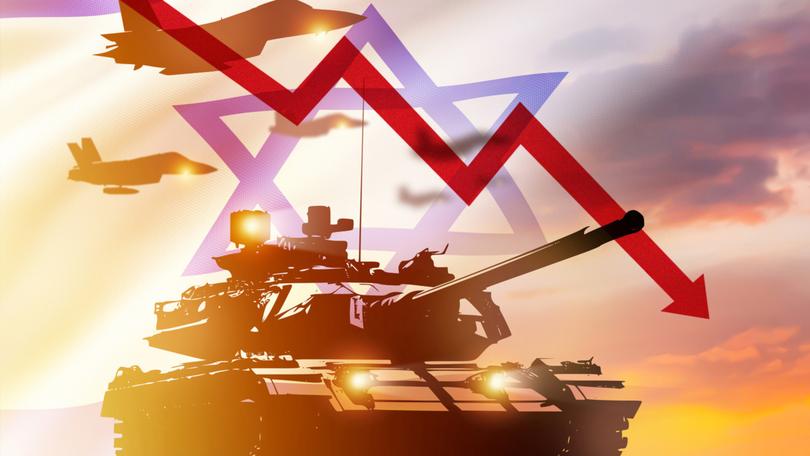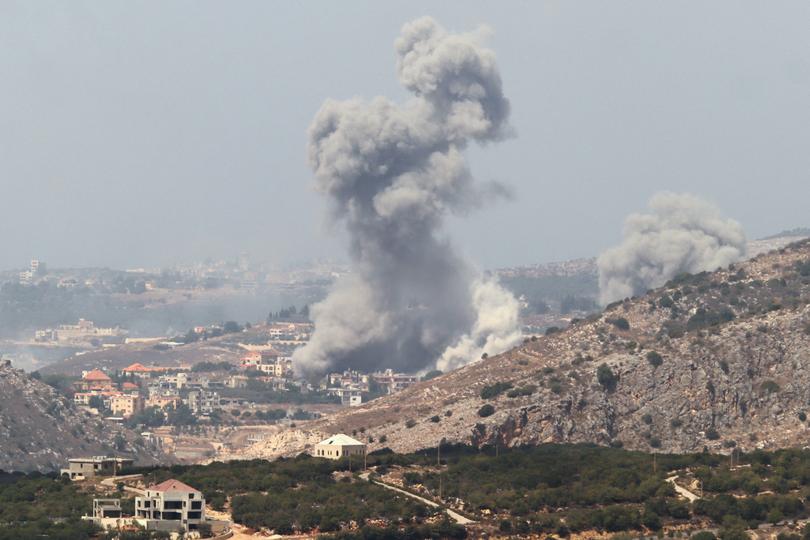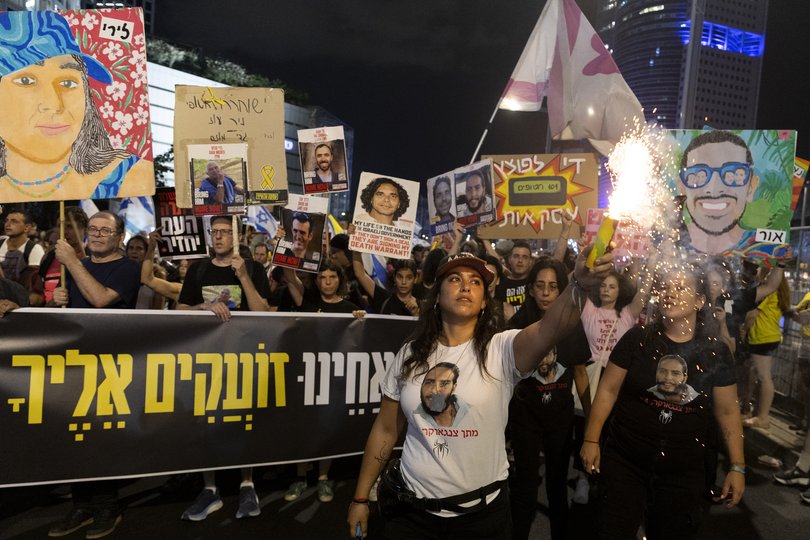The Economist: Can Israel’s economy survive an all-out war with Hezbollah?

Israel’s economy should have been trundling towards recovery.
After all, many of the 300,000 workers who left their jobs to fight have now returned to offices, factories and farms.
Instead, a difficult situation is becoming ever more acute.
Sign up to The Nightly's newsletters.
Get the first look at the digital newspaper, curated daily stories and breaking headlines delivered to your inbox.
By continuing you agree to our Terms and Privacy Policy.GDP growth came to just 0.7 per cent between April and June, on an annualised basis, some 5.2 percentage points below economists’ expectations, according to Bloomberg, a news agency.
On September 16, Bezalel Smotrich, Israel’s finance minister, was forced to ask legislators to approve an emergency deficit increase. It was the second time he had made such a request this year.
Mr Smotrich’s profligacy worries investors.
So does the possibility of fiercer fighting.
On September 23 Israel launched air strikes over the Lebanese border, killing 558 people, according to local officials.
This followed incidents where pagers and walkie-talkies used by Hezbollah exploded, killing 39 people, as well as months of rocket attacks by the Lebanese militia group on Israeli settlements.
Money has begun to flee the country.
Between May and July outflows from Israeli banks to foreign institutions doubled, compared with the same period last year, to $2 billion.
The country’s economic policymakers are more worried than they have been since the start of the conflict.
Any war-time economy rests on a knife edge: a government must fund its armed forces, often through deficit spending, while ensuring it remains robust enough to clear its debts when peace arrives.
The nightmare scenario for Israel is a conflict that spreads into Jerusalem and Tel Aviv, the country’s commercial centres.

But even a less intense war in which fighting is limited to the country’s north may be sufficient to tip its economy over the edge.
Israel’s free-spending government is not helping matters. In March, when the armed forces hoped for a ceasefire by July, generals reckoned they would need 60 billion shekels ($16b, or 3 per cent of Israeli GDP) on top of their normal budget, and then a permanent rise of 30 billion shekels a year to cope with the new security situation.
Since then, as fighting has continued to rage, deficit forecasts have continued to rise.
The deficit is now expected to hit 8.1 per cent of GDP this year — almost three times as much as had been anticipated before the war.
With hostilities set to spread further, it will probably grow wider still.
What will this mean for Israeli policymakers?
In January the country’s debts came to 62 per cent of GDP, well below average in the OECD, a club of mostly rich countries.
As such, Mr Smotrich has a bit of breathing room. But only a bit.
If fighting continues next year, the financial situation will deteriorate.
Bondholders want reassurance that there is space left for more war spending, so have a lower ceiling for acceptable debts than in similar countries. Rating agencies are getting nervous, too.
Fitch and Moody’s both say that they will probably downgrade Israel again after already doing so once this year.
Mr Smotrich — a West Bank settler whose party is on Israel’s far-right — makes the problem worse.
Nobody believes he will ask the army to keep costs down.
He has also declined to take other measures to rein in the deficit, either by cutting spending elsewhere or raising taxes.
Israel’s expansive welfare state remains intact.
The ultra-Orthodox population and settlers, Mr Smotrich’s allies, have benefited from more subsidies and handouts to keep men at home.
Mr Smotrich promises $35b in savings next year, but he has not said where most of that will come from.
Stronger growth would ease the pain. Although reservists have returned to work and consumption has returned to pre-war levels, Israel’s economy remains smaller than on the eve of war.
Mr Smotrich has cushioned the least productive parts of society and starved industry of resources.
The labour market is ultra-tight, with the unemployment rate at just 2.7 per cent.
Firms are struggling to fill vacancies and Israel’s small high-tech companies are under strain.

They are losing out on funding owing to the war, warns Startup Nation, a think-tank.
Some 80,000 Palestinian workers were denied permits after October 7, and have never been replaced.
As a consequence, the construction industry is 40 per cent smaller than it was this time last year, greatly impeding housebuilding and repairs.
For now, the biggest impact has been on inflation, which hit an annual rate of 3.6 per cent in August, having accelerated over the summer.
Should the scale of Hezbollah attacks increase, the lack of construction workers will become an even bigger problem.
Investors are unsure about Israel’s ability to bounce back.
The shekel is volatile, Israeli banks are experiencing capital flight and the three biggest report a hefty increase in customers asking to transfer savings to other countries or to index them to the dollar.
Although inflation remains above target, the central bank chose to stick to its previous policy rate at its August monetary policy meeting, for fear of derailing the recovery.
Then there is the nightmare scenario.
Few investors are preparing for a war that would engulf all of Israel, including Jerusalem or Tel Aviv — even though Hezbollah may be capable of launching such an attack.
Under such a scenario, economic growth would be hit hard, perhaps even harder than after October 7.
Army outgoings would soar. Fleeing investors would probably topple banks and send the shekel plummeting, forcing the Bank of Israel to intervene and spend its reserves.
Whatever happens, Israeli economists are resigned to things getting worse.
Even Mr Smotrich, generally a bullish type, is now emitting an air of exhaustion: “We are in the longest and most expensive war in Israel’s history.”
Previous conflicts have ended in economic disaster for Israel. Do not be surprised if this one does, too.
Originally published as Can Israel’s economy survive an all-out war with Hizbullah?
